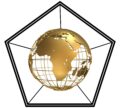JOAPS Volume 27, No. 1,2021
Abstracts
The Women’s Emancipation Struggle in Senegal during the 1980s
and 1990s: The Case of the “Yewwu-Yewwi” Movement.
By Aliou Ly∗
Abstract
Senegalese women’s socio-cultural and economic status has always been shaped by local customs,
religion, and gender structures. During the colonial period, against the backdrop of the opportunity to
have a Western education, economic changes and extremely rapid urbanization encouraged Senegalese
women to join the political arena in supporting various male political leaders. This trend continued
during the post-colonial period, leading to the election of female parliamentarians and women holding
high governmental positions in the 1960s and 1970s. The 1980s saw the creation of more vocal and
visible women’s organizations such as the Yewwu-Yewwi “Pour la Liberation des Femmes” movement of
women, as the country was facing the rapid growth of Islamic fundamentalism and sexism in urban
areas. These women decided to fight for the protection of women’s rights such as equality in heritage,
the right to land and education, and protection of married women’s rights. However, the Yewwu-Yewwi
movement disappeared in the early 1990s. Was the movement not able to mobilize Senegalese women
in general because it used a women’s emancipation discourse embedded in a Western paradigm, or
were the anti-women’s-emancipation groups, mostly male traditionalists and fundamentalist Islamic
groups, too powerful to challenge in Senegal during the 1980s and early 1990s?
Socioeconomic Status of Parents and Provision of Education in the
Context of the Covid-19 Pandemic in Cameroon: the Case of the
Southwest Region
By
Sophie Ekume Etomes* and Fonkeng Epah George∗
Abstract:
This study examines the effect of the socioeconomic status of parents on the provision of education
during the COVID-19 lockdown in Cameroon. Three major objectives guided this study, which examines
the effects of parents’ educational level and level of income on the provision of education and how the
emergency response strategy adopted by the government affected the provision of quality education for
all. A case study research design was used, and the Southwest Region was chosen as the study site. Forty
parents from rural and urban areas within the region were selected while twelve divisional delegates
were sampled for the study. An analysis of the data revealed that parents’ level of income and
educational attainment impacted the quality of education received by children during the COVID-19
lockdown.
Transformation of Artisanal Small -Scale Mining (ASM) in Ghana:
From Pre-Colonial to the Modern Era
By
Emmanuel Ababio Ofosu-Mensah∗
Abstract
Literature abounds on the nature and impact of gold mining activities in Ghana, but limited efforts have
so far been directed at exploring a concise historical account of the transformation of artisanal small-scale
gold mining in Ghana from the pre-colonial era to the present. Against this background, this article traces
the history of gold mining policies and regulations that have brought about the transformation of the
artisanal small-scale mining sector in Ghana. Drawing on archival documents, interviews, newspaper
reports, and a review of secondary materials, this study reveals that, unlike the situation in the pre-
colonial era, artisanal mining from the late 1980s has been a threat to national safety and security. This
problem has been exacerbated by the corrupt activities of individuals within Ghanaian society. This study
argues that the limited capacity of government, along with a long-standing trend of bad implementation of
the country’s small-scale mining policies, have contributed to the magnitude of the problem.
Living in Paradise? Cameroonian Women in the American Diaspora
By
Joseph Takougang, Ph. D
Abstract
For decades after independence, African migration was a phenomenon that could be attributed to a
patriarchal culture that encouraged male domination. Later, that traditional mindset was reinforced by a
colonial system that often marginalized the role of women in many African societies. Indeed, because
young men were more likely to be educated than their female counterparts under the colonial system, they
were advantaged after independence to attend institutions of higher learning abroad when it became
necessary to train young Africans to occupy important government and other decision-making positions
in the newly independent states. Recently, however, women have become important players, both in their
statistical representation and as important players in Africa’s migration narrative. Takougang examines
the contributory factors to contemporary migration of Cameroonian women to the United States, as well
as the opportunities and challenges they face in America.
America.
